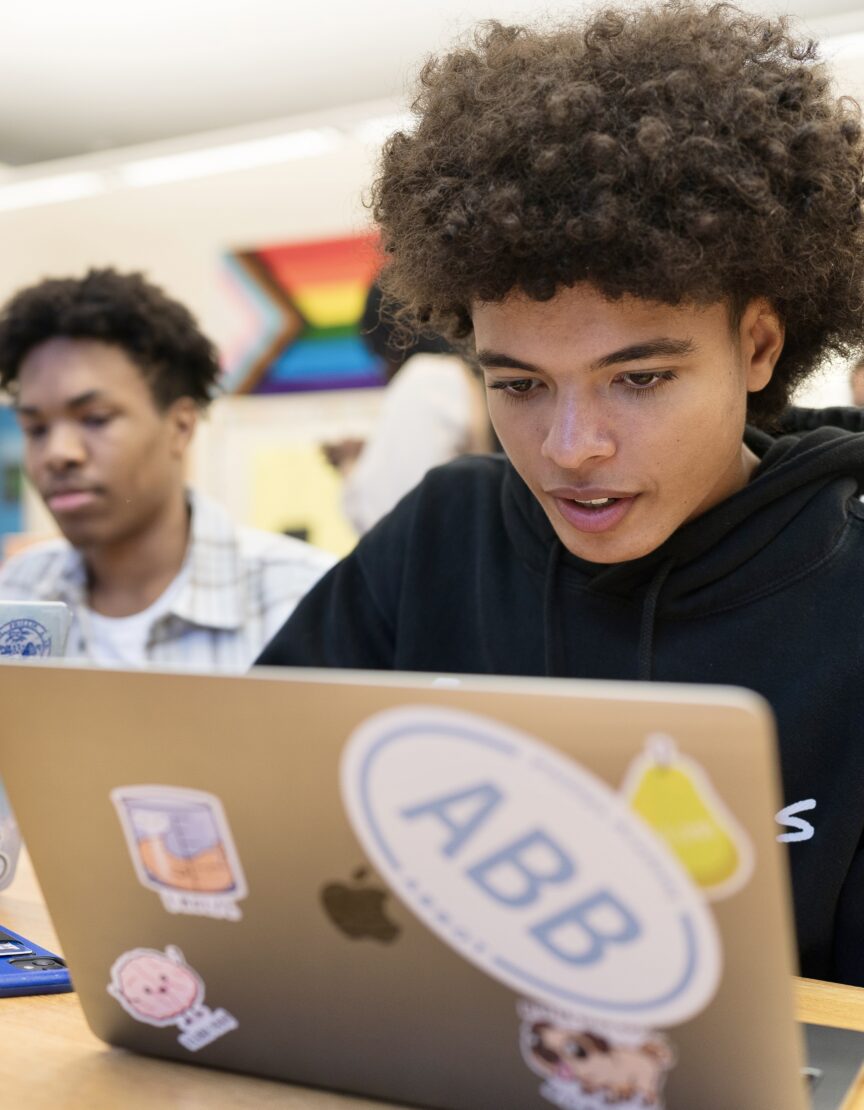
September 29, 2023
Computer Science and Ethics at Duke University: Past and Present
The ethi{CS} project collaborates with Duke's Open Design Studio to foster learning at the intersection of CS and ethicsby Ryan Ravanpak & Nicholas Zufelt
Aria Chernick, an associate professor of practice at Duke University, runs a course centered on open-design practices. In fall of last year, the course brought together a team of undergraduate students and a graduate student mentor to investigate questions pertaining to human flourishing at the intersection of ethics and computer science. As part of the course design, Professor Chernick connected students with other groups at Duke University and beyond, including the ethi{CS} project team at Andover. Among the many things we discussed throughout the year were the contours of the ethi{CS} project and our emphasis on both content creation and professional development.
The exact focus of our involvement varied term by term. The fall term focused on a research phase, wherein the group worked through their open process conducting interviews and a survey into relevant literature. During this time, the group interviewed members of the ethi{CS} project, as well as key stakeholders from other groups relevant to the intersection they were interested in.
The two interviews they did with me [Ravanpak] focused largely on questions of what we'd found effective in teaching the normative dimensions within computer science and what we'd found challenging. We discussed hopes and concerns for the nature of the work moving forward.
Nicholas Zufelt, a founding member of the ethi{CS} project, noted that the primary findings of Duke's research reinforced the principles behind the ethi{CS} project: that teachers are excited to include basic ethics pedagogy techniques but are overworked and underprepared. We were happy to see the groups validate conclusions similar to ours through their own distinct process.
The spring term focused on creating and delivering lessons, having teachers pilot those lessons, and creating a notion platform for holding them. The students reported to the ethi{CS} project team and Professor Chernick on the findings. The back-and-forth that the students did was particularly influential in the process of building their curriculum.
Later in the year, Professor Chernick gathered organizations to discuss ethical STEM education. The work of this collaboration culminated in a grant proposal, which was recently accepted.
During 2023–2024, the ethi{CS} project will continue its collaboration with Professor Chernick and the team at Duke University. We hope to answer a number of questions pertaining to modes of efficacious ethics pedagogy in computer science courses and the impact that open design can have on learning both normative content and CS content. It's going to be an exciting year.
